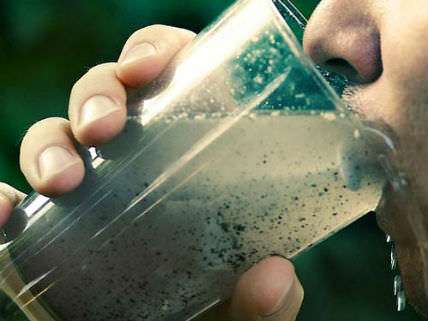Fracking Does Not Contaminate Drinking Water, Says New Yale Study
Environmentalist opposition to fracking undeterred by data

Environmental activists continue to claim that fracking (the use of horizontal drilling with high-pressure water) to unlock vast stores of natural gas and oil from shale formations contaminates drinking water. They hint that natural gas and the constituents of fracking fluids migrate through cracks from the shale formations into drinking water wells. In fact, intensive research efforts have yet to confirm that any contamination that has occurred in this way, including at the contested gas field in Pavillion, Wyoming.
The Environmental Protection Agency released a draft report earlier this year that found that the minor amount of contamination that has occurred was the result of failed well casings and ground spills. The EPA reported that it "did not find that [fracking techniques] have led to widespread, systemic impacts on drinking water resources in the United States."
A new report led by researchers from Yale University published in the Proceedings of the National Academy of Sciences has measured well water near fracked wells to see if they might be contaminated by methane and fracking fluids flowing upward from shale formations. What did the researchers find? No contamination due to fracking.
The PNAS summary reports:
Organic compounds found in drinking water aquifers above the Marcellus Shale and other shale plays could reflect natural geologic transport processes or contamination from anthropogenic activities, including enhanced natural gas production. Using analyses of organic compounds coupled with inorganic geochemical fingerprinting, estimates of groundwater residence time, and geospatial analyses of shale gas wells and disclosed safety violations, we determined that the dominant source of organic compounds to shallow aquifers was consistent with surface spills of disclosed chemical additives. There was no evidence of association with deeper brines or long-range migration of these compounds to the shallow aquifers (emphasis added). Encouragingly, drinking water sources affected by disclosed surface spills could be targeted for treatment and monitoring to protect public health.
So how dangerous was the contamination caused by surface spills? Lead investigator Brian Drollette noted that all the chemicals detected in the samples occurred in small concentrations, so they are "likely not a threat to human health."
It should go without saying, but I'll say it anyway: Landowners harmed by contamination from spills or cracked well casings should be compensated by natural gas drilling companies for resulting damage.


Show Comments (52)